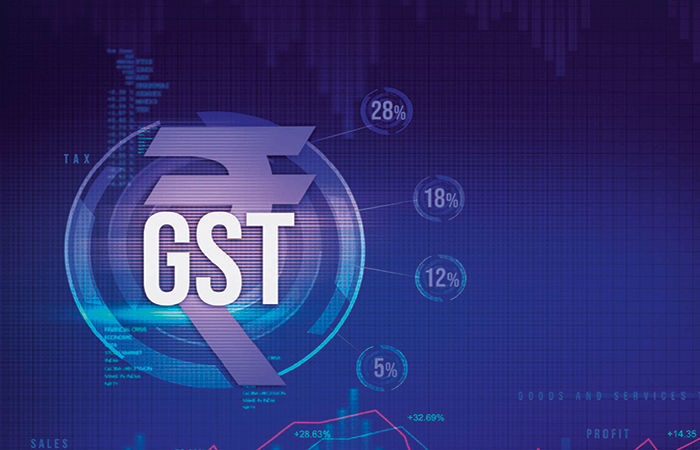
Union Budget 2024: With many major changes related to GST, Finance Minister Nirmala Sitharaman presented the budget for the year 2024-25 in the Lok Sabha on Tuesday (July 23). The 53rd meeting of the GST Council was held. In which many reliefs and improvements in laws, rules and procedures were suggested.
(1) As far as the biggest relief is concerned, for the financial years 2017, 2018-19 and 2019-20, if the trader has been served a Section 73 notice or order or the case is pending at the appellate stage, only interest on interest will be waived if the tax paid till 31-03-2025 and penalty will be waived. However, this provision will not apply to cases of willful tax evasion under Section 74 and interest and penalty will not be refunded if the interest and penalty have already been paid. As a result of this amnesty scheme, inadvertent mistakes committed by traders in the initial years of GST will be resolved and the burden of unnecessary appeals will be reduced. For this, a new section 128A was added.
(2) The government has also given relief in one of the most difficult taxes in GST. Accordingly, the last date for claiming ITC for the financial years 2017-18, 18-19 and 20-21, which was earlier 30 September, has now been extended to 30 November 21. Therefore, due to the trader getting tax credit, interest and penalty will also be reduced.
(3) Sometimes it also happened that when the 3-year time limit of section 73 expired and there was no deliberate default or evasion of tax by the trader, then later a notice was issued under section 74, which had a time limit of 5 years. To remove all these loopholes, a new section 746 has been introduced which will come into force from the year 2024-25. Sections 73 and 74 limited to 2023-24.
(4) Un-denatured extra neutral alcohol or rectified spirit used in the manufacture of liquor for human consumption other than wine for human consumption will no longer be subject to GST.
(5) With regard to filing of second appeal before the GST Tribunal and at the appeal stage, the amount of down payment has been changed from 20% to 10% and the maximum amount is Rs 50 crore. In the first appeal also the maximum amount of down payment was changed from Rs 50 crore to Rs 20 crore.
(6) Other changes: Changes relating to time of supply, an additional provision for cancellation after cancellation of registration form added, refund of unutilized tax credit of IGST to SEZ/EOU units (zero rated) when such supplies are eligible for export duty will not be eligible, change in summons-appearance of person or authorised person mandatory, change in allowing hearing of anti-profiteering appeal cases by Principal Bench of GST Tribunal, changes in transitional provisions relating to invoices as on 1.7.2017, revision in premium of co-insurance, etc.
The government has to go to Parliament or Vidhan Sabha only to amend the law. According to Article 11, the government has the power to reduce or keep the tax zero. According to the Supreme Court's decision in the Mohit Minerals case, Parliament and Legislature are superior to the GST Council. The GST Council can only make recommendations. A total of 22 circulars and 5 announcements have been made in the budget in pursuance of the recommendations made in the 53rd meeting of the Council held earlier on 26-06-2024.
Composition and role of GST Council:
The GST Council was first empowered to deliberate on VAT and GST and convince all states to adopt a uniform tax system, a committee of finance ministers of the states which released the first discussion paper on GST on 10-11-2009. Thereafter, many changes were made in the design of GST. Now let us assume that GST is a body that makes recommendations on all policy matters of GST. Council. It was created by the Constitutional Amendment Act, 2016 by adding a new Article 279-A to our Constitution. The GST Council consists of the Union Finance Minister as the Chairperson and the Minister of State for Revenue and Finance/Taxation of each State or any other Minister nominated by the State as members. The Council makes recommendations to the Centre and the States regarding the implementation of GST on the following issues:
, Should taxes, cesses and surcharges levied by the Centre, states and local bodies be subsumed into GST?
, Which goods and services are exempted from GST?
, From which date GST will be imposed on petroleum crude, high speed diesel, petrol, natural gas and aviation turbine fuel?
, To lay down principles regarding GST law, principles of collection, apportionment of integrated tax and place of supply;
, Financial limit beyond which persons with low turnover will be exempted from GST
, Fixing tax rates in GST;
, Fixing specific rates of tax for a specific period to raise additional resources in case of natural calamities;
, Any other matter relating to the implementation of GST.
, Seats: A total of 53 GST Council seats have been filled so far. The GST Council recommends laws for the implementation of GST, including:
, Parliament has passed laws on Central Goods and Services Tax, Integrated Goods and Services Tax, Union Territory Goods and Services Tax and Compensation to States.
, Further, State Goods and Services Tax Acts were also recommended for the States, which have been passed by the respective State Legislatures.
 look news india
look news india